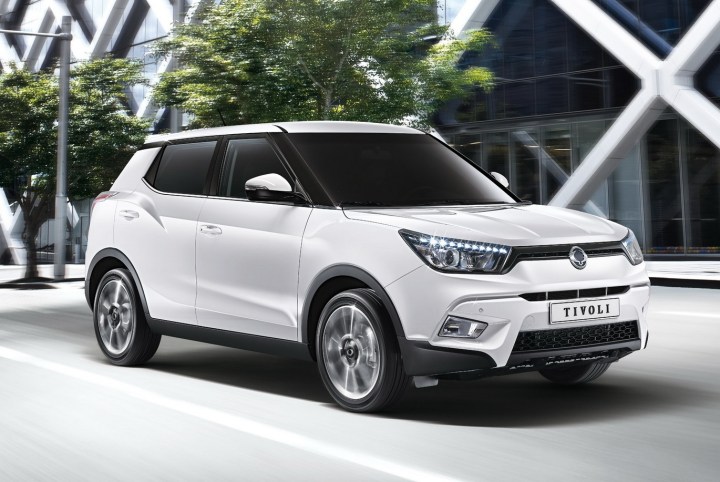
Ssangyong is owned by India’s Mahindra & Mahindra, the same company that recently purchased Pininfarina, and it specializes in building crossovers and SUVs. The brand’s U.S. offensive will begin with the Tivoli, a small soft-roader that debuted last year during the Geneva Auto Show. The Tivoli (pictured) — a name borrowed from a picturesque town in central Italy — will compete in the same segment as the Mazda CX-3 and the Honda HR-V.
The second Ssangyong model to make the trip across the Pacific will be the Korando. The current model has been on sale since 2010 so we’re unlikely to see it in the United States, but we’ll get a new and improved version of the crossover. The Korando — a contraction of Korea-can-do — will take on the Volkswagen Tiguan and the Kia Sportage, though it’s too early to tell whether it will land as a five-seater, as a seven-seater, or both.
Ssangyong is developing two gasoline-burning engines specifically for the United States market. The first is a turbocharged 1.5-liter four-cylinder unit that makes 162 horsepower; the second is a 2.0-liter turbo four rated at 220 horses. The company isn’t out to compete with Mercedes-AMG and BMW M, so don’t expect to see a super-crossover with large alloys, spoilers, and twin turbos any time soon.
Daewoo, Daihatsu, Suzuki, Renault, Peugeot, and Rover are among the numerous foreign companies that have tried to establish themselves in the United States and failed. Ssangyong knows that becoming a credible player in the American auto industry is easier said than done, especially for a brand without an image or a reputation, but executives believe they have what it takes.
“America is very, very competitive, so we need to build a good brand. That’s why we’re now preparing completely new products,” explained company CEO Choi Johng-Sik in an interview with Automotive News.
Ssangyong hopes to sell its first car in the United States by the year 2020.



